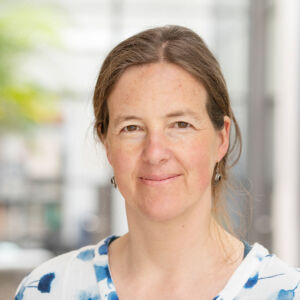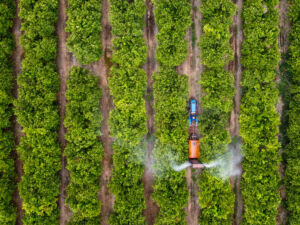Assessing the unseen consequences: influence of an extreme weather event on environmental perceptions and connection to nature
Matthias Winfried Kleespies et al.
RobustNature identifies characteristics that determine the robustness of ecosystems and guarantee their functionality through dynamic compensation in the event of disturbances.
We are currently observing a dramatic decline of biodiversity. The common focus on maintaining the status quo poses the risk of protecting landscape areas that are too small in the medium term. Superordinate ecosystem functions, which represent the natural basis of life for humans, animals, plants, fungi, microorganisms, meadows, waters, and forests, are thereby lost from sight. Using an interdisciplinary approach, RobustNature identifies the characteristics that determine the robustness of ecosystems and guarantee their functionality in the event of disturbances by means of dynamic compensation. Furthermore, societal systems are considered, which are on the one hand drivers of complex global environmental changes and on the other handendangered by them. Therefore, a further focus is on the robustness of nature-society systems as well as on the sustainability of management options on ecological, societal and economic levels.
RobustNature is a research cluster of the Goethe University Frankfurt, in which different natural and social science departments participate. In addition to ISOE – Institute for Social-Ecological Research, the Senckenberg Society for Nature Research – Leibniz Institution for Biodiversity and Earth System Research (SGN), the Senckenberg Biodiversity and Climate Research Center (SBiK-F) and the Helmholtz Centre for Environmental Research (UFZ), among others, are involved in the initiative.
The interdisciplinary consortium investigates the robustness and resilience of nature-society systems in the Anthropocene to generate knowledge for social-ecological transformations. For this purpose, the Faculty of Biological Sciences establishes a first-level understanding of processes in biological systems from molecules to ecosystems. Taking into account the interactions between society and environment, the characteristics that ensure the robustness of ecosystems and thus functionality despite disturbances are to be investigated on a further level with the subdivisions of biosciences, hydrosciences and geosciences. On a third level, interdisciplinary (with participation of social ecology, economics and social sciences) repercussions of disturbed ecosystem functionalities on societal systems will be analyzed. Finally, case-specific solutions will be developed and corresponding recommendations for action for politics, civil society and economy will be derived.
Within the research cluster, ISOE is leading the research area “Systemic Risks”, in which environmental risks and related complex societal problems are considered in a cross-cutting manner.
The decline of farmland birds and insects on land as well as in water, steadily decreasing fish populations in rivers and seas, as well as the overarching dramatic global loss of biodiversity are direct consequences of the interaction of multiple anthropogenic stressors that are stretching the robustness of planet Earth's geophysical and biological controls beyond all limits. Retroactively, these environmental changes also have significant macrosocietal and economic consequences, such as climate-induced food crises and poverty in large parts of the world. Quantifying and classifying the factors that determine biodiversity is key to developing integrative approaches in order to maintain a world in which humans and the environment, alike, use vital resources in a sustainable manner. Due to the complexity of the issues, inter- and transdisciplinary approaches in research and development are needed, which can only lead to sustainable and future-proof solution concepts through close cooperation between medicine, natural, cultural, social and engineering sciences.
The research cluster (RobustNature - Robustness and Resilience of Nature-Society Systems in the Evolving Anthropocene) is funded by Goethe-University. Spokespersons of the cluster are Prof. Dr. Ernst Hans Karl Stelzer (FB 15 – Faculty of Biological Sciences, Institute of Cell Biology & Neuroscience; BMLS) and Prof. Dr. Henner Hollert (FB 15 – Faculty of Biological Sciences, Institute for Ecology, Diversity and Evolution).
Matthias Winfried Kleespies et al.
Francisco Sylvester et al.
Carolin Völker et al.
Frank Lehmkuhl et al.
How do chemicals affect health, ecosystems and the economy? How can we create a better understanding and greater awareness of pollutant risks?
Go to Topic Page

